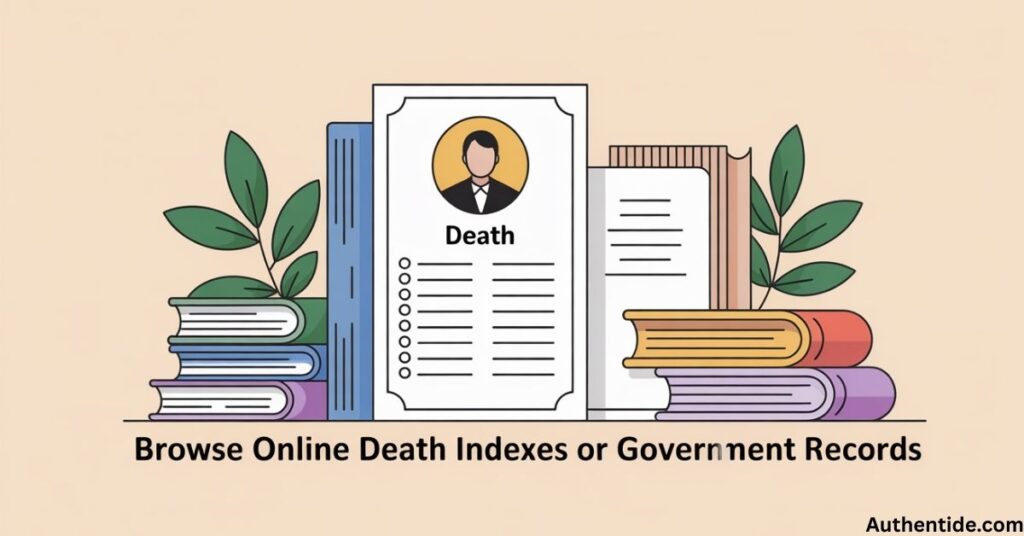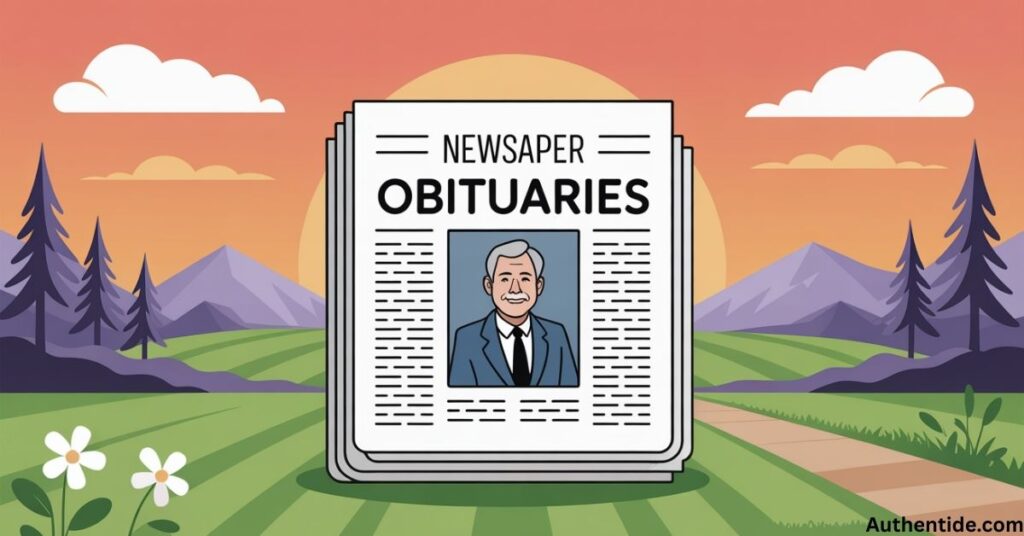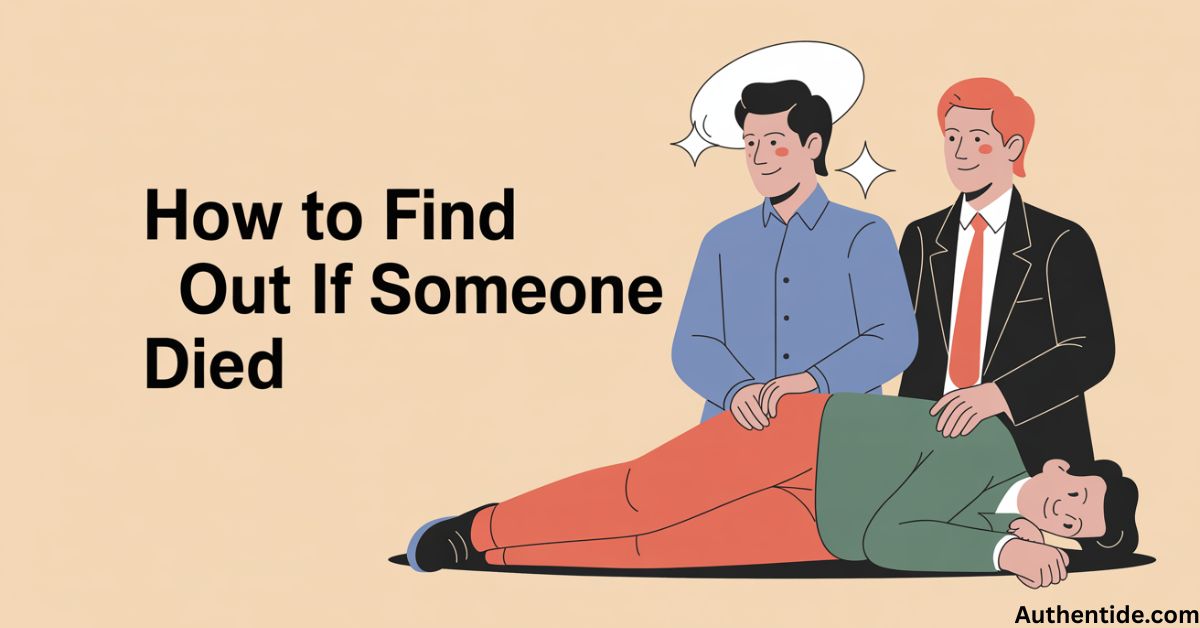How to find out if someone died can feel like a morbid question, but in truth, it’s one of the most human ones we ever ask. Maybe you’ve lost touch with an old friend. Or perhaps you’re worried because someone hasn’t returned your messages. In a world where people move, change phone numbers, or go offline altogether, finding answers, especially about something as sensitive as death, can be tricky and emotionally complex.
This article walks you through practical, respectful, and discreet ways to find out if someone has passed away, without crossing any emotional boundaries. You don’t want to jump to conclusions or make someone feel uncomfortable if your assumptions are incorrect. That’s why it’s so important to use the right resources and approach this topic thoughtfully.
Whether you’re looking to reconnect, offer condolences, or simply bring closure to lingering uncertainty, this guide provides the tools, tips, and tactful strategies to confirm someone’s status while protecting your peace of mind. We’ll explore digital tools, personal connections, and official records, using real-world scenarios to help you navigate every step.
How to Find Out if Someone Died Without Asking Family
If you’re trying to confirm someone’s passing but don’t feel comfortable contacting their family directly, you’re not alone. Many people face this dilemma especially in distant friendships or professional relationships.
Imagine this: You worked with David, a former colleague who suddenly went silent over a year ago. You don’t want to intrude on his family, but you need closure. In this case, using indirect yet reliable channels is the best route. This could include mutual acquaintances, public death records, or even a social media memorial.
Confirm with a Mutual Acquaintance

One of the simplest ways to find out if someone has died is to discreetly reach out to a mutual contact. This approach is both respectful and personal.
Scenario Example:
Hi Sarah,
I hope you’re well. I’ve been thinking about John lately—we used to talk often, but I haven’t heard from him in a long time. I don’t want to intrude, but I was wondering if you’ve heard from him or know if he’s okay. Thank you.
This gentle message leaves space for the person to share what they know without pressure.
Check Social Media for Clues
Social media memorials are common today. If someone has passed away, their loved ones may share posts, turn their profile into a memorial page, or post funeral announcements.
Search their name on platforms like Facebook, Instagram, or LinkedIn. Look for comments like “Rest in peace,” or “Gone too soon.” Often, mutual friends will tag them in remembrance posts. This is one of the more immediate ways to find out if someone died especially in the digital age.
Search for an Online Obituary
Online obituary search tools can reveal a wealth of information. Sites like Legacy.com, Tributes.com, and even local funeral home websites often host digital obituaries that can be easily searched by name, city, or date.
Scenario Example:
You enter “Mark Thompson” and “Chicago” into the Legacy search bar. Instantly, a result appears for a man who passed in 2022, with full funeral details and a place to leave a message for the family.
Look for keywords such as death notices, funeral announcements, or obituary archives. These can validate the information before taking any next steps.
Browse Online Death Indexes or Government Records

For a more official confirmation, try public death records or state death indexes. In the U.S., most states maintain vital records, which include birth and death certificates. Some states allow you to request a death information lookup online or in person.
Websites like:
These sites provide access to genealogy websites, ancestry records, and online death databases that cover decades of information.
Keep in mind: Some of these databases require a subscription or formal request process.
Contact Their House of Worship
If the person you’re trying to find was religious or part of a spiritual community, reaching out to their church, mosque, synagogue, or temple may be helpful.
Scenario Example:
Dear Reverend Moore,
My name is Erica Jones. I’m trying to reconnect with a long-lost friend, Angela Smith, who used to attend your congregation. I understand this is sensitive, but I was wondering if you might be able to confirm if she’s still part of your community or if she has passed on. Thank you for your time.
Spiritual leaders are often willing to confirm or respectfully pass on news if appropriate.
Visit the Local Courthouse
Another formal approach is to check with the county courthouse where the person lived. They may provide access to death certificates, probate filings, or estate notices, depending on your jurisdiction.
This method is especially useful if the person passed away some time ago and no obituary was ever published. Be prepared to provide a full name, date of birth, and approximate date of death.
Explore Digital Archives or Newspaper Obituaries

Local newspaper obituaries still play an important role in memorializing those who’ve passed. Many papers have now digitized their archives, so you can use websites like:
These platforms help you check if someone died, especially if you only have limited details about them. You can also try Google with a query like:
“John Williams obituary Phoenix Arizona 2021”
Choose a Tree Instead of a Tombstone
This might sound poetic, but some people are now turning to living memorials, such as trees planted in honor of a loved one. Services like Better Place Forests offer sustainable memorial options where ashes are returned to the earth under a protected forest tree.
So, if someone you care about embraced nature or requested eco-friendly burial arrangements, searching these services may reveal a tribute that wouldn’t appear in traditional obituary archives or funeral home websites.
Master the Art of Discreet Inquiry
The most important section of this guide is learning how to approach these searches delicately. You want information, but you also want to honor privacy and grief. Follow these pro tips:
- Never assume someone has died just because they’re inactive online.
- Use gentle language when asking others—avoid phrases like “Did he die?” Instead, say, “Have you heard from him recently?”
- If reaching out to a funeral home or religious institution, be clear but respectful about your relationship to the person.
- useful names and any known details like birthdates or cities to refine your search.
Most importantly, give people space. If someone doesn’t respond, don’t press. The process of how to know if someone died must always be guided by kindness and discretion.g
Final Thoughts
Figuring out how to find out if someone is deceased for free is more than a technical task, it is often a journey of closure. Whether you’re using a deceased person search, reaching out through social media memorials, or digging into ancestry records, every step should be taken with empathy.

Your go-to place for smart synonyms and celebrity updates. Muhammad Hassan Abid is dedicated to creating useful, engaging content that informs, inspires, and truly serves your curiosity

